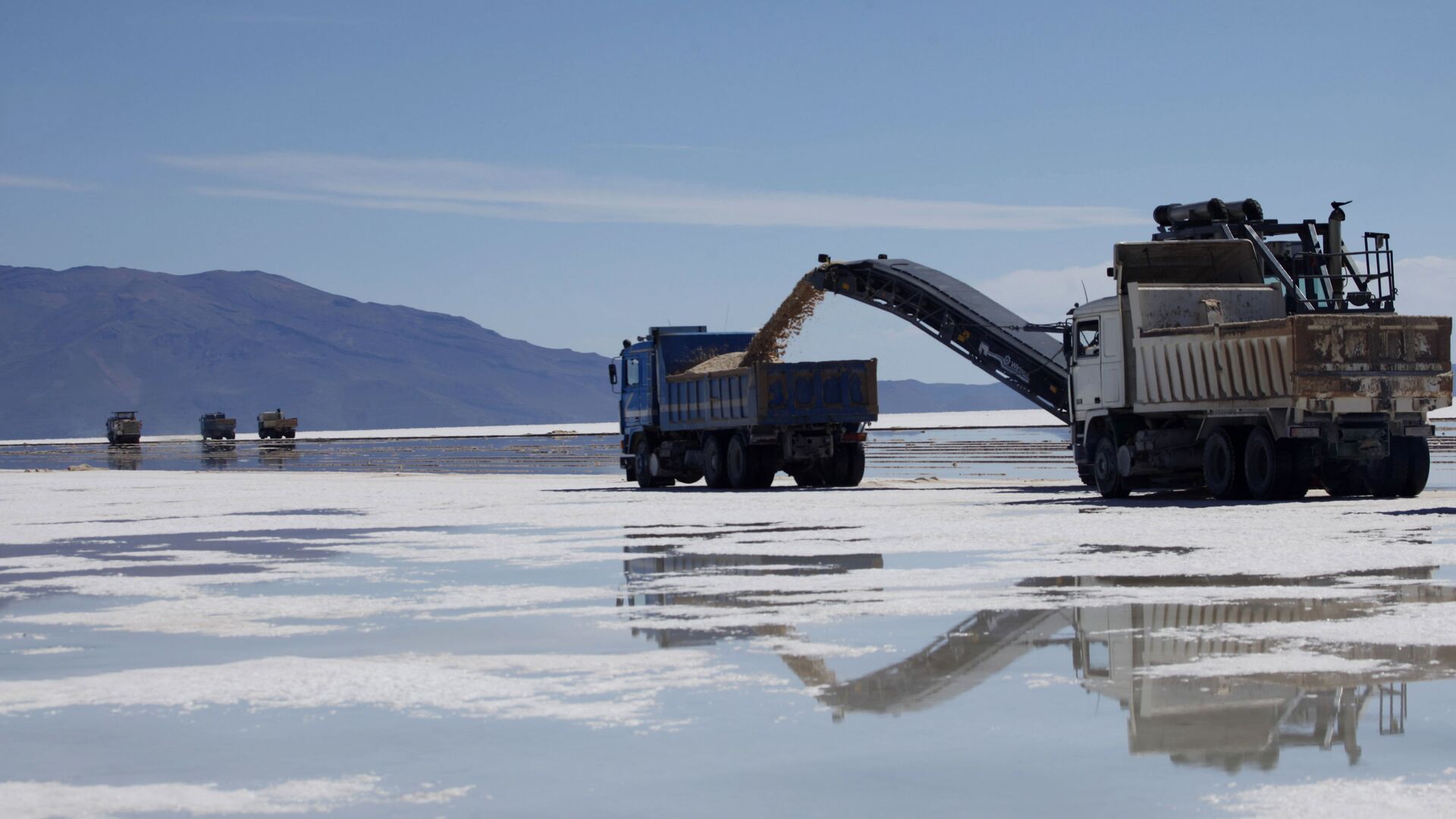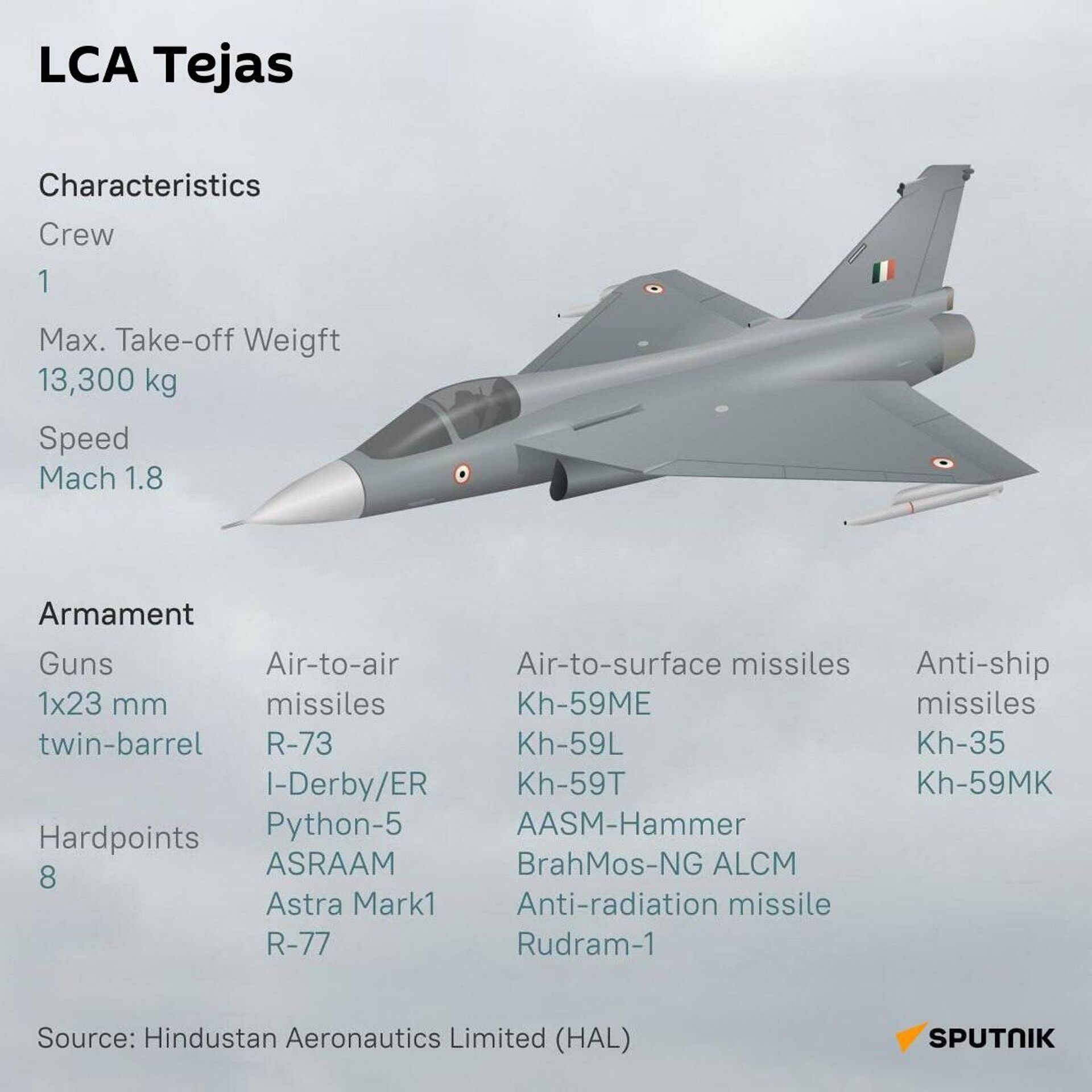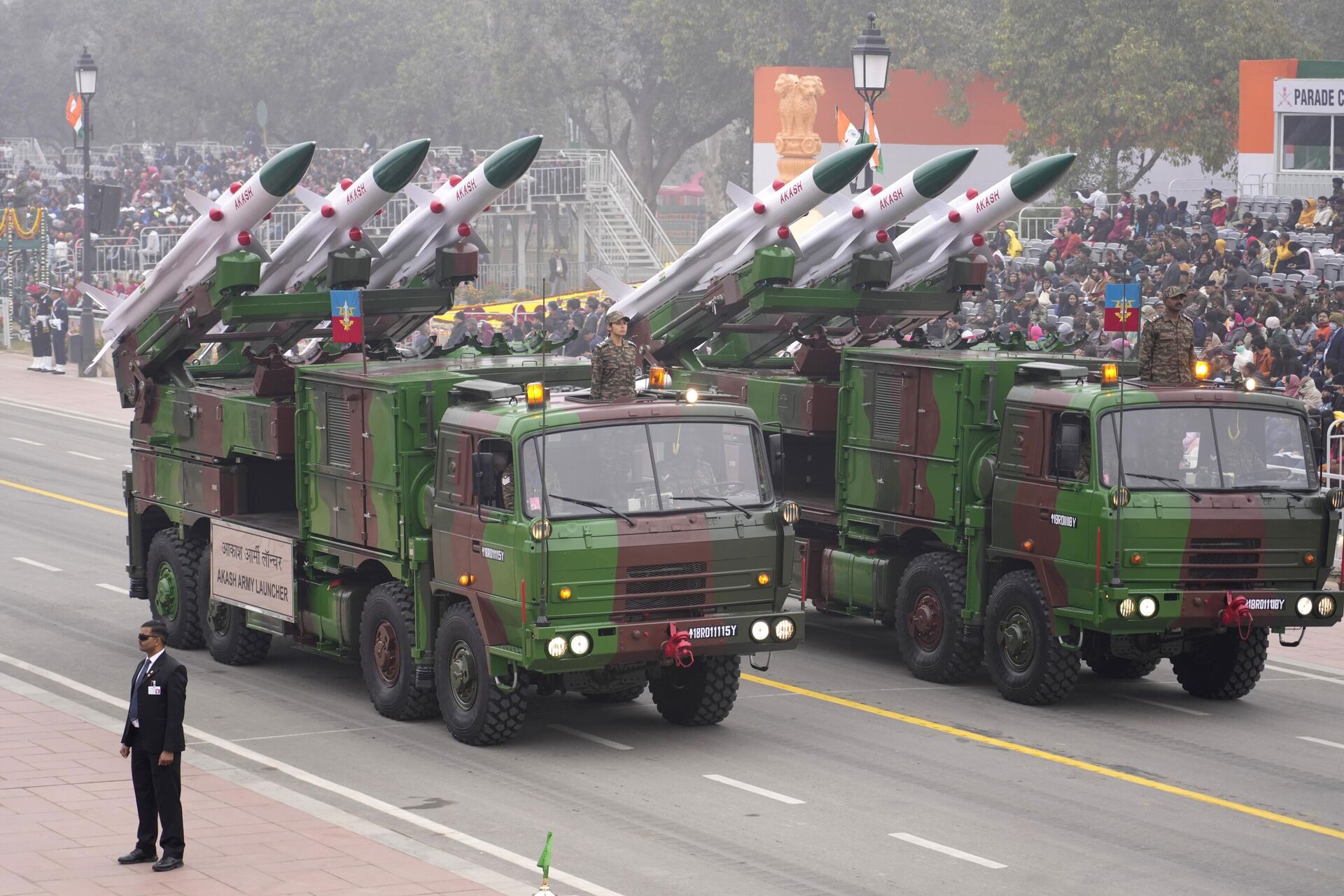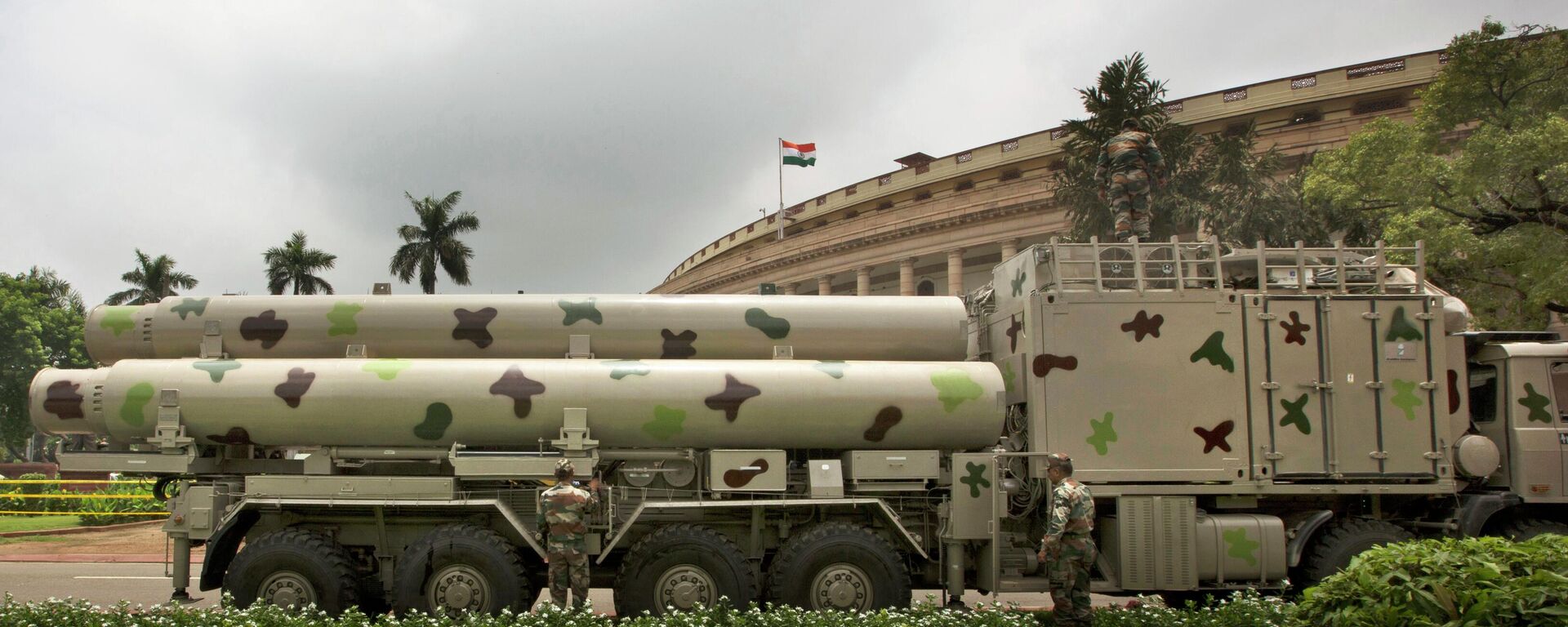https://sputniknews.in/20230825/critical-metals-ban-key-for-indian-military-product-self-reliance-expert-3826514.html
Critical Metals Ban Key for Indian Military Product Self-Reliance: Expert
Critical Metals Ban Key for Indian Military Product Self-Reliance: Expert
Sputnik India
The Indian government is reportedly set to announce an export embargo on four critical metals majorly used in the aerospace and defense sector.
2023-08-25T15:05+0530
2023-08-25T15:05+0530
2023-08-25T15:22+0530
sputnik opinion
india
delhi
new delhi
defense sector
military spending
military equipment
lca tejas
dhruv helicopter
indian air force (iaf)
https://cdn1.img.sputniknews.in/img/07e7/02/0a/822814_0:62:3417:1984_1920x0_80_0_0_554e85fd20147434a93b134e93389d00.jpg
The Narendra Modi government's proposed export ban on four critical metals can make India self-reliant and self-sustainable in several domains of military production, especially in aerospace manufacturing, a crucial minerals specialist has told Sputnik India. The remarks of Raj Singh, a Mumbai-based expert in metallurgical products, come at a time when New Delhi has been making efforts to up the percentage of local content in its defense products.India Ramps Up Efforts to Increase Localized Content in Defense Products According to Hindustan Aeronautics Limited (HAL), the percentage of domestically made content in India's home-grown fighter jet LCA Tejas stands at around 52 percent which the company is planning to raise to 65 percent in the coming years.Moreover, the locally-built Advanced Light Helicopter (ALH), Dhruv, is said to have 55 percent indigenous content.Also, it would lead to an increased supply of raw materials and subsequently processed goods to the Indian defense industry, he stated.Besides, it will pave the way for the development of chemical and technical expertise in research and development pertaining to these metals and a sustainable internal market and B2B & B2C chain of goods transfer in the country, the expert opined.Singh asserted that prohibiting exports of these items would result in the development of indigenous technology and know-how, savings in import duty, and lesser dependence on foreign manufacturers and companies.Which Products are Made From Lithium, Beryllium, Niobium, and Tantalum? Asked to mention the products in which these metals are extensively used, Singh pointed out that lithium is the main component in the production of:On the other hand, as per his understanding, beryllium is used in:Tantalum, he revealed, is deployed in construction material for special chemical industries, that is, jet engine blades. Furthermore, super-alloys of tantalum and nickel are used in jet engines.He insisted that the metal itself is used as a capacitor in digital devices. It is also used in tooth and knee replacement.
https://sputniknews.in/20230823/brics-link-driving-rising-interest-in-brahmos-missile-iaf-veteran-3779990.html
india
delhi
new delhi
mumbai
Sputnik India
feedback.hindi@sputniknews.com
+74956456601
MIA „Rossiya Segodnya“
2023
Pawan Atri
https://cdn1.img.sputniknews.in/img/07e6/0c/13/139630_147:0:831:684_100x100_80_0_0_8fa2b25903e7787fe6a2698552c167df.png
Pawan Atri
https://cdn1.img.sputniknews.in/img/07e6/0c/13/139630_147:0:831:684_100x100_80_0_0_8fa2b25903e7787fe6a2698552c167df.png
News
en_IN
Sputnik India
feedback.hindi@sputniknews.com
+74956456601
MIA „Rossiya Segodnya“
Sputnik India
feedback.hindi@sputniknews.com
+74956456601
MIA „Rossiya Segodnya“
Pawan Atri
https://cdn1.img.sputniknews.in/img/07e6/0c/13/139630_147:0:831:684_100x100_80_0_0_8fa2b25903e7787fe6a2698552c167df.png
india critical metals export ban, critical metals export ban india, india crucial minerals export ban, crucial minerals export ban india, india critical metals embargo, india crucial minerals embargo, india lithium ban, india lithium export ban, india beryllium ban, india beryllium export ban, india niobium ban, india niobium export ban, india tantalum ban, india tantalum export ban, india critical metals ban, india crucial minerals ban, indian defense sphere, indian defense
india critical metals export ban, critical metals export ban india, india crucial minerals export ban, crucial minerals export ban india, india critical metals embargo, india crucial minerals embargo, india lithium ban, india lithium export ban, india beryllium ban, india beryllium export ban, india niobium ban, india niobium export ban, india tantalum ban, india tantalum export ban, india critical metals ban, india crucial minerals ban, indian defense sphere, indian defense
Critical Metals Ban Key for Indian Military Product Self-Reliance: Expert
15:05 25.08.2023 (Updated: 15:22 25.08.2023) The Indian government is reportedly set to announce an export embargo on four critical metals majorly used in the aerospace and defense sector.
The Narendra Modi government's proposed
export ban on four
critical metals can make India self-reliant and self-sustainable in several domains of military production, especially in aerospace manufacturing, a crucial minerals specialist has told Sputnik India.
The remarks of
Raj Singh, a Mumbai-based expert in metallurgical products, come at a time when New Delhi has been making efforts to up the
percentage of local content in its
defense products.
India Ramps Up Efforts to Increase Localized Content in Defense Products
According to Hindustan Aeronautics Limited (HAL), the
percentage of domestically made content in India's home-grown fighter jet
LCA Tejas stands at around
52 percent which the company is
planning to raise to 65 percent in the coming years.
Moreover, the locally-built Advanced Light Helicopter (ALH), Dhruv, is said to have 55 percent indigenous content.
In this context, Singh, having expertise in lithium (Li), beryllium (Be), niobium (Nb), and tantalum (Ta), noted that export restrictions on Li, Be, Nb, and Ta will create more opportunities for industries and businesses to take up the processing of these metals in India.
Also, it would lead to an increased supply of raw materials and subsequently processed goods to the Indian defense industry, he stated.
Besides, it will pave the way for the development of chemical and technical expertise in research and development pertaining to these metals and a sustainable internal market and B2B & B2C chain of goods transfer in the country, the expert opined.
Singh asserted that prohibiting exports of these items would result in the development of indigenous technology and know-how, savings in import duty, and lesser dependence on foreign manufacturers and companies.
"Internal production of these much sought-after minerals will ensure a ready supply of materials at a lesser cost, and build self-sustainability & self-reliance on many fronts of manufacturing, innovation, design, and production of military aircraft, communication devices, running nuclear energy programs and facilitating automobile production," Singh told Sputnik India on Friday.
Which Products are Made From Lithium, Beryllium, Niobium, and Tantalum?
Asked to mention the products in which these metals are extensively used, Singh pointed out that lithium is the main component in the production of:
high-temperature-resistant glass (used in space technological projects):
On the other hand, as per his understanding, beryllium is used in:
X-ray tubes, special alloys,
Beryllium mirrors (used in meteorological satellites),
thin plates for nuclear weapon design.
"Meanwhile, niobium is needed to manufacture high-end optical grade glass and super-steel products. Upcoming applications include niobium batteries and niobium ethoxide for electronic printed circuit boards (PCBs)," Singh elaborated.
Tantalum, he revealed, is deployed in construction material for special chemical industries, that is, jet engine blades. Furthermore, super-alloys of tantalum and nickel are used in jet engines.
He insisted that the metal itself is used as a capacitor in digital devices. It is also used in tooth and knee replacement.





